Crisis in Politics, Crisis in Civil Society

Although March began with promises of a Human Rights Action Plan, a severe winter storm had gathered already by the middle of the month: an MP stripped of his status and detained on Parliament premises, a court case filed to shutter an opposition political party – third biggest of the Parliament, a prominent human rights lawyer – president of a leading human rights organization - taken into custody.
There is a well-known Turkish proverb about the month of March, which could -indeed should- serve as an epigraph to this article: month of March, month of agony. The month of March can neither put an end to winter nor does it wish to postpone the spring any longer. Due to this state of uncertainty, March makes you experience summer and winter in a single day and does not go away before making us ill due to these dizzying transitions between contrasting seasons. That’s why it is depicted as a month of agony.
For the sake of their own survival, politicians generate and sustain a political crisis, which in turn triggers a social crisis with severe economic and moral impact on the entire society, as well as a human rights crisis dealing heavy blows to civil society actors.
Judging by the current state of Turkish politics and civil society, one can say that the month of March truly lived up to its reputation this year. The month began with a warm breeze as the government heralded a new reform package, leaving us wondering, ‘Is the spring really about to arrive?’ Yet soon these soft winds ceded their place to political thunder clouds and storms, as the civil society found itself caught between spring and winter, and the country was rocked by turbulence true to this month’s reputation.
Let us remind ourselves of what happened, although it might be quite difficult to forget for those who experienced it: The Court of Cassation upheld the prison sentence of 2 years, 6 months for the Peoples’ Democratic Party (HDP) MP Ömer Faruk Gergerlioğlu -representing Kocaeli province- who had been waging the most ardent struggle for human rights at the parliament. The district court had handed down this sentence to Gergerlioğlu for retweeting a news story. Some of the phrases and images used in the said news story were presented by the prosecutor as “propaganda for a terror organization”, and the MP was handed down a prison verdict. An analysis of the posts which had previously brought about Gergerlioğlu’s dismissal from his post as a physician at a public hospital and these more recent posts which resulted in the aforementioned sentence clearly shows that Gergerlioğlu stands against violence, and for peace. However, the prosecutor’s office and the court did not hesitate to level the accusation of terror propaganda against Gergerlioğlu, who used to be the president of a human rights organization belonging to the same broad political tradition with AKP, in a striking example of how judiciary institutions have steered far, far away from normality, in their attempt to assume the correct political position.
In early March, Gergerlioğlu filed a Constitutional Court challenge to the verdict. Due to his qualities mentioned above and the fact that he indiscriminately stood against all human rights violations as an MP, Gergerlioğlu enjoys ample support from different sectors of society. As such, the verdict against him created a huge public uproar. Whatever their opinion concerning Gergerlioğlu’s rights advocacy work might be, all those who can make an impartial assessment about him agree that the judicial proceedings against him were unfair. Most importantly, although the Constitution stipulates that judicial proceedings against an MP ought to be postponed, that was not what happened in Gergerlioğlu’s case.
The prison sentence against Gergerlioğlu, after being upheld by The Court of Cassation, was sent to the Turkish parliament on March 13. All calls made to the speaker of the parliament by civil society actors, political parties and the society at large fell on deaf ears, as the verdict against Gergerlioğlu was read out at the parliament on March 17 and he was officially stripped of his seat. To many observers, the scene was reminiscent of the Kurdish parliamentarians stripped of their MP status in March 1994, and of Merve Kavakçı who was expelled from the parliament as other MPs shouted, “Get Out! Get Out!”.
As such, although March began with promises of a Human Rights Action Plan, a severe winter storm had gathered already by the middle of the month. Hours after Gergerlioğlu was stripped of his parliamentary seat, the Chief Public Prosecutor for the Court of Cassation, Bekir Şahin announced that he filed a case with the Constitutional Court to ban HDP. The indictment, apparently drafted with haste, requested a political ban for 687 HDP politicians including some who had passed away, as well as the confiscation of the party’s assets.
In the wake of these developments, in the morning of March 19, the police detained Öztürk Türkdoğan, Co-Chair of the Human Rights Association (İHD) -one of Turkey’s most prominent and active human rights organizations. Türkdoğan was also a member of the so-called wise persons group during the Peace Process that lasted between 2013 and 15.
Crisis leading to more crisis
Armed clashes erupting in the Kurdish provinces in the summer of 2015 had resulted in a steep increase in human rights violations. The coup attempt of the summer of 2016 and the state of emergency declared in its aftermath expanded this human rights crisis across the country. Turkey has been going through a severe human rights crisis ever since. This crisis is at times worsened by new legislation restricting civil society’s leeway and creating a very precarious situation for civil society actors and seems to be alleviated at other times with various human rights reform packages – right before taking a turn for the worse owing to developments such as those summarized above.
This crisis engulfing civil society in fact reflects the crisis of politics. The political crisis began with the Gezi Park protests, worsened with the failure of the Peace Process, and laid deep roots in the wake of the coup attempt and the ensuing state of emergency. After each modest step suggesting a return to the normal, the political crisis in fact became more and more entrenched. For the sake of their own survival, politicians generate and sustain this political crisis, which, in turn, triggers a social crisis with severe economic and moral impact on the entire society, as well as a human rights crisis dealing heavy blows to civil society actors. That is, although the government wants spring for itself in March, it seems unwilling to let others leave the dead of winter. Its inability to improve the economic situation creates immense pressure on the government, which in turn prompts it to further dominate and restrict the field of civil society.
It seems that large swathes of the society, as well as many civil society actors, consider that the only exit from this crisis is to make sure that the opposition bloc participates in the elections without losing its “unity and cohesion”. However, the current weakness of civil society actors is not only a result of developments involving the government and civil society, since the opposition’s failure to provide strong support to civil society actors has had an undeniable effect as well. The opposition is reluctant to push back the restrictions imposed by the government as regards the Kurdish question, seems to lack a broad and long-term political perspective, and encroaches upon the field of civil society instead of increasing the latter’s freedom of maneuver; all of which give us a clear idea about the risks that the forces of social opposition and civil society may face if they were to let their guard down.
To conclude, the phrase “March many weathers” has turned out to be very accurate this year. However, when no light is visible at the end of the tunnel, civil society actors must have the ambition and resolve to themselves embody that light at the end of the tunnel. As such, it would be fitting to end this article with a verse from Âşık Daimi’s famous folk ballad: Come what may, the end of winter ushers in the spring!




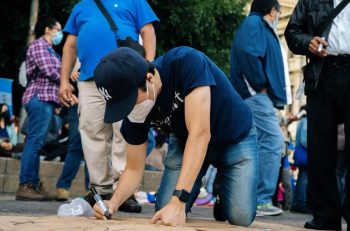
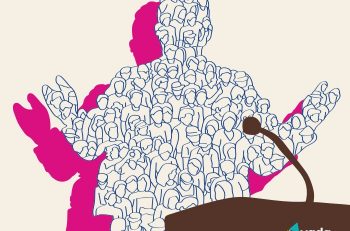


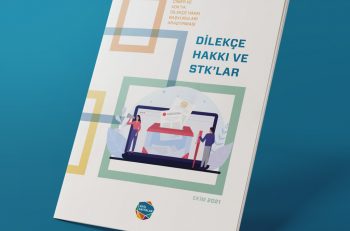
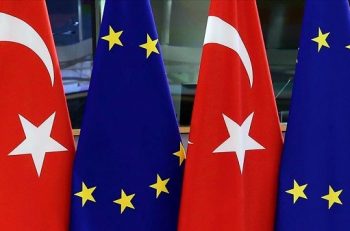
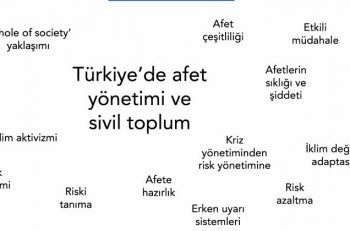
Bizi Takip Edin